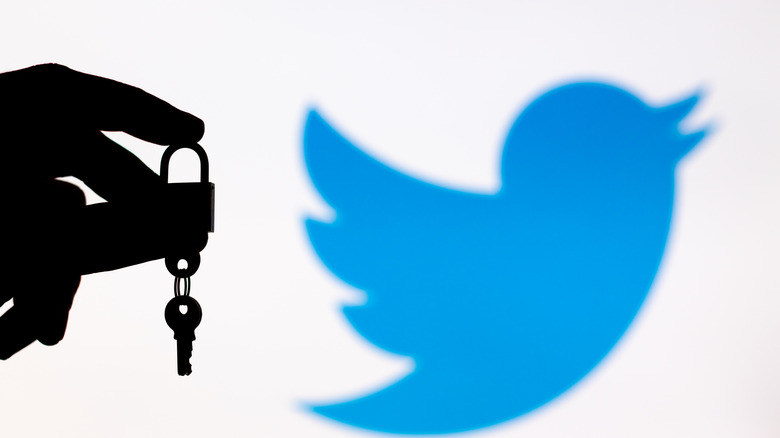Here's What To Add (And Delete) From Your Socials Before Applying For A Job
Applying for jobs can be a task within itself. In addition to tailoring your resume to fit each position you're applying for, you must ensure you don't say anything that might turn recruiters off. Job applications are your opportunity to look perfect and brag a bit about your accolades. But there is one critical step many job seekers overlook in their quest to land a new gig, even though it could make or break those career aspirations.
Have you ever applied for a job you knew you were qualified for and still didn't get hired? You possess all the proper education, a viable amount of experience, and excellent references who can vouch for this as well as your character. Yet, they go with another candidate. While this incident can be crushing, your social media may be the culprit. Tequila-adorned selfies and casual profanity in videos may not align with your professional goals, but potential employers might find those posts on social media. Therefore, cleaning up your online presence should be the first priority before you hit submit on your application.
Yes, employers are snooping around your social media
Unfortunately, you aren't the only one doing some pre-date stalking. Potential employers are actively screening your profiles more than ever before. In fact, a 2017 survey conducted by CareerBuilder found that 70% of employers use social media to learn more about job candidates. A stunning 54% said they refused to hire someone based on what they stumbled upon online.
A few things employers may be hunting for are a sense of professionalism, what your leisure time looks like, any negativity, and possible ethical concerns that don't align with the company's culture. Even after you get a job, remember that numerous employers still lurk around on Facebook and Instagram pages to ensure their newly hired staff member is on their best behavior. While this isn't a sign to quit your job, it is something to take into consideration. Several cases of people losing employment due to social media posts have plagued the news in recent years.
Last year, CBS News reported a Colorado woman felt she lost her new tech job after discussing her salary on TikTok. A Michigan woman was terminated from her optical lab assistant role for sharing photos deemed explicit on her Instagram, though she claims her job only targeted her because it was LGBTQ+ content, according to ABC affiliate WZZM.
Courtney Spritzer, co-CEO of Socialfly, lent some advice to NBC News. She suggested job-seekers post on social media as if they were already employed by a corporation. Also, avoid controversy and over-sharing before and after you land the gig.
Making your accounts private may not be the answer
Some may think that making their social media profiles private is the answer to keeping their social and professional lives separate. Actually, bosses become disinterested when they cannot access your social media accounts, according to Isabel Thottam, a contributor for the employment website Monster. Instead of going private or deactivating altogether, try archiving many of your posts except those that reflect professional moments. Photos from your former employer's staff appreciation picnic or a charity bowling event are the perfect kinds of images you want to leave public. A work headshot can also be a great replacement for a risqué birthday party shot.
Photos and videos can be hidden, but status updates and tweets cannot. A thorough scrubbing is essential. Any views criticizing or praising politicians should be one of the first things to go. Remove any offensive jokes, especially those making fun of marginalized groups. Anything you wouldn't say out loud in a work setting should not have a place on your social media imprints during the job quest.
Employers don't expect potential staffers to steer clear of the internet. However, simply change the way you use it when job searching. Share meaningful content to show employers what you can contribute to the organization. Retweet a recent article regarding strides made to combat climate change or share your views on the current trends in your chosen field. Your future bosses may find you more impressive if you communicate high-quality information.


